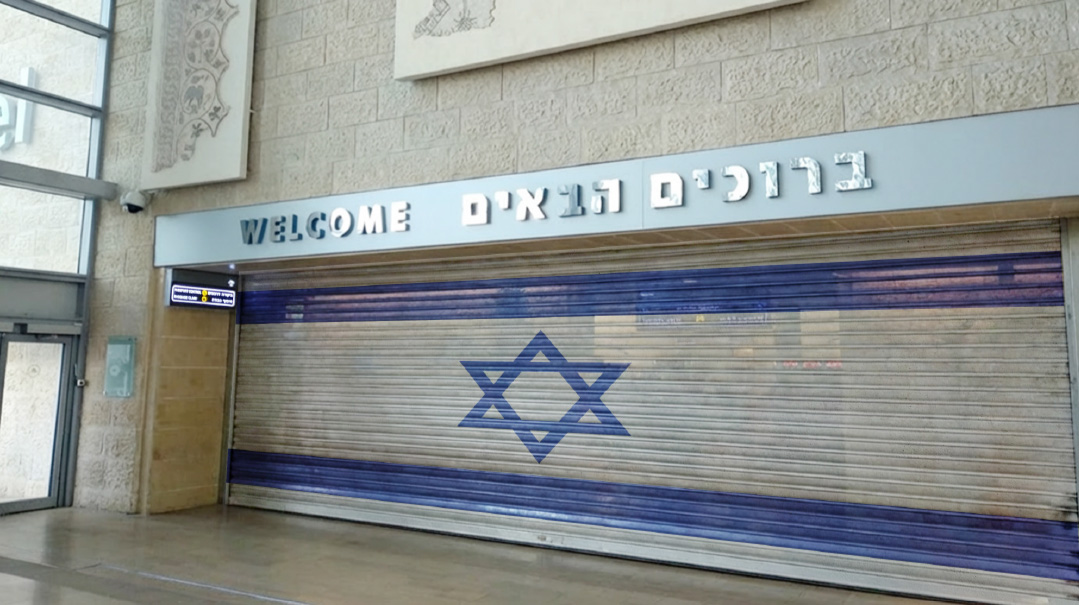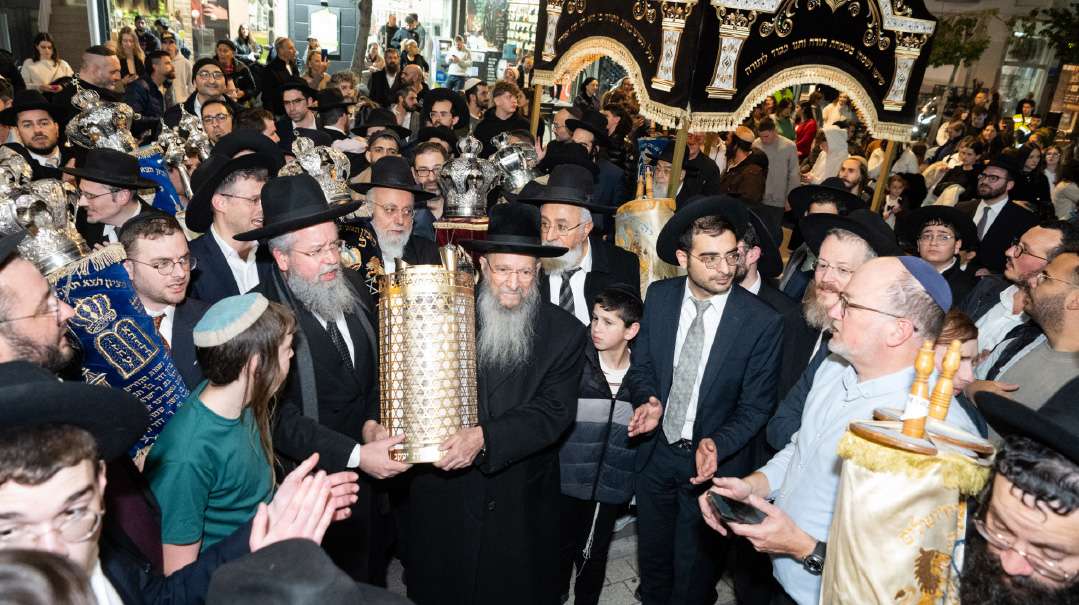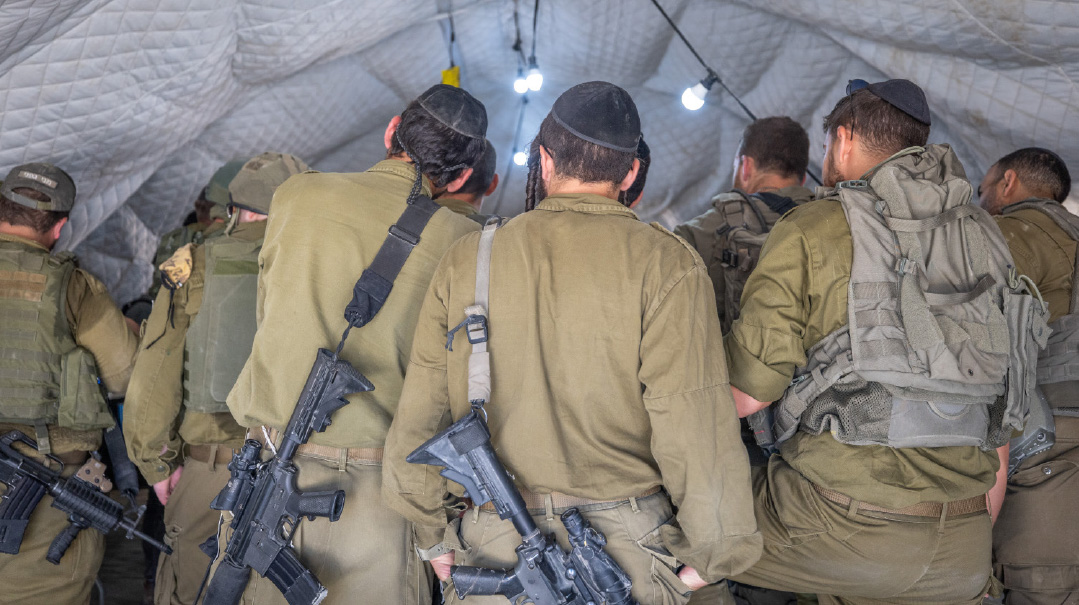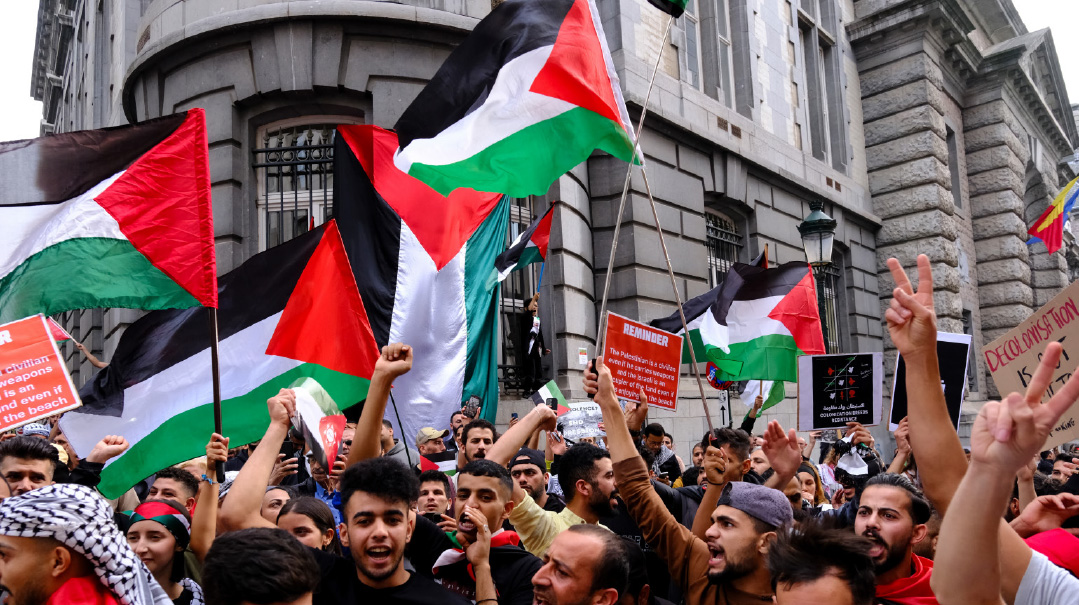A Jewish Mother’s Strength

Mourning the victims of the Ramot terror attack
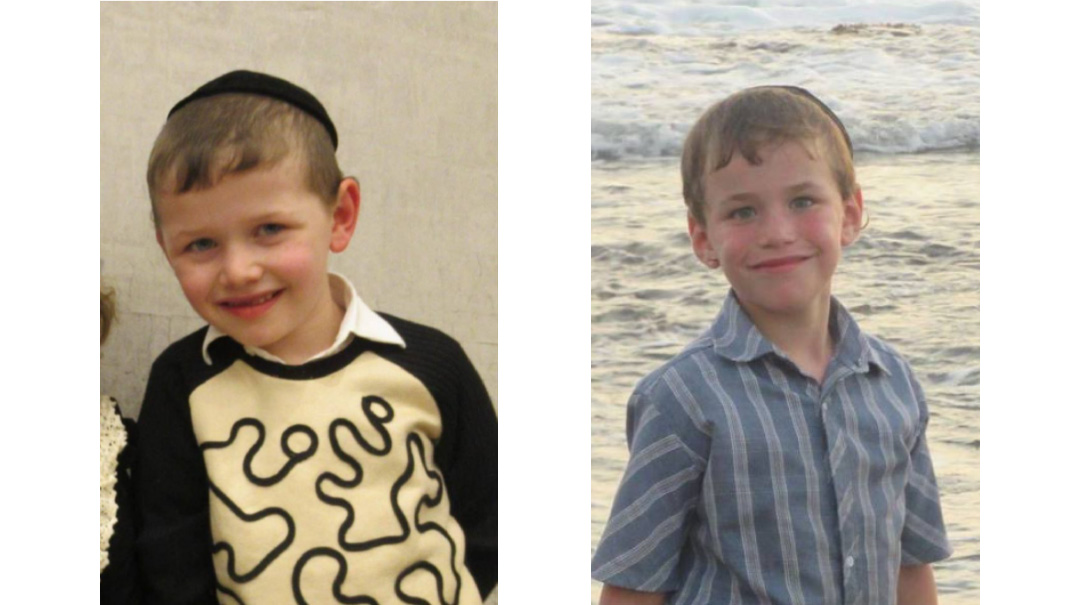
Even in Jerusalem, a city used to difficult scenes, the Paley family shivah in Ramot this week was harrowing.
In one room sat the mother, Mrs. Devorah Paley, surrounded by teenage daughters with anguish stamped on their faces. In her hand was a picture of her “sweeties” — the little boys she’d left at the bus stop dressed in their Shabbos best, whose remains she was called on to identify.
The men’s side was equally pathetic. A young teen with his even younger brother accepted comfort for the loss of their two siblings. In a hospital a few miles away, their father hovered between life and death, the victim of a devil in human form.
But amid the brokenness, there was something else that should resonate just as widely: the unimaginable strength and faith of a Jewish mother.
“They were happy children, good children who loved to help,” Devorah Paley said of her sons Yaakov Yisrael, 5, and Asher Menachem, 7.
“They loved to do mitzvos, to go with their father on Motzaei Shabbos to shul to review their learning. Now they are together — in death as in life, and it’s good for them,” she told secular journalists from Israel’s main media outlets with a sad smile, as she sat in front of her husband’s well-worn Shas.
“We believe that just as Hashem gave them to us with love,” the grieving mother finished her quiet monologue, “He also took them from us with love.”
It would take a heart of stone not to be moved by those simple words of faith, and they undoubtedly made an impression on many viewers.
To me, they were the expression of a Jewish greatness that resurfaces at countless tragedies in this terror-hit country.
At times of intense grief, there is no faking it: Under the hammer blow of sudden tragedy, the truth will out.
When one of their “martyrs” is killed, the Palestinian mob yells for revenge, because bloodlust runs deep. Much of humanity engages in the blame game, seeking to assuage the pain by lashing out at whoever is perceived to be responsible.
And time after time, with the simplicity of total conviction, Torah Jews utter the most extraordinary versions of Tzidduk HaDin.
Like Devorah Paley, they reaffirm that the blow that fell upon them wasn’t a random stroke of fate, but the intervention of a loving Father.
The Ramot shivah was only the most recent iteration of the phenomenon, which you’ll see wherever there’s Jewish tragedy.
The Mercaz Harav massacre in 2008 and the murder of three teens near Chevron in 2014 produced the same distilled expressions of faith.
That same year, when their two little girls died in a pest-control program gone horribly wrong, Shimon and Michal Gross spoke only of Hashem’s kindness in sparing their other two children.
When a fire killed five members of one Jewish family in Buenos Aires recently, and when two fathers from Columbus, Ohio, lost their lives in a plane crash a few weeks ago, the mourners’ responses focused on their own faith, not on the blame game.
There is a greatness to Am Yisrael, lying just beneath the surface, that tragedy brings forth.
In Chazal’s idiom, expressed in a midrash that we’ll read in two weeks’ time, the Jewish People are like an olive, which produces its best under pressure.
The outpouring of faith is all the more remarkable given that in the face of mortality, most of humanity responds with platitudes, as I discovered years ago.
A favorite route of Gateshead yeshivah bochurim in need of a walk is to a nearby park, whose open spaces are a welcome contrast to the confines of the yeshivah neighborhood.
Next to the park is a cemetery, and walking past one day, I spotted one gravestone whose inscription has been burned into my consciousness ever since.
Carved on the marble headstone was the legend “Robert, King of the Road.”
Shocking in its meaninglessness, the epitaph has remained with me since, because it typifies the alternative to a life filled with faith.
Faced by death — the ultimate crisis — the choice is either banality, or the belief that there’s a bigger story, a higher purpose.
So often, we bemoan the superficiality of our generation and our own spiritual shortcomings.
We’re a pile of contradictions: Kollel life exists alongside indulgence; we pay lip service to growth yet dedicate tremendous energy to making money.
This self-critique is on the mark, but it misses something.
Against all the odds, given the moral degradation around us, our Torah communities produce men, women, and children who strive to live a better life.
We may fail to live many of the lofty ideals that we profess, but they remain ideals nonetheless.
And when tragedy strikes, sometimes greatness emerges; the terrible beauty of belief amid suffering.
Witnessed by countless Israelis thanks to the press cameras, Devorah Paley’s remarkable words were testament to her own deep-seated emunah.
Her family will need every last drop of that reservoir as they move forward after such a horrific blow.
But we onlookers can take something away from her visceral faith: a belief in our own latent potential.
(Originally featured in Mishpacha, Issue 949.
Oops! We could not locate your form.

